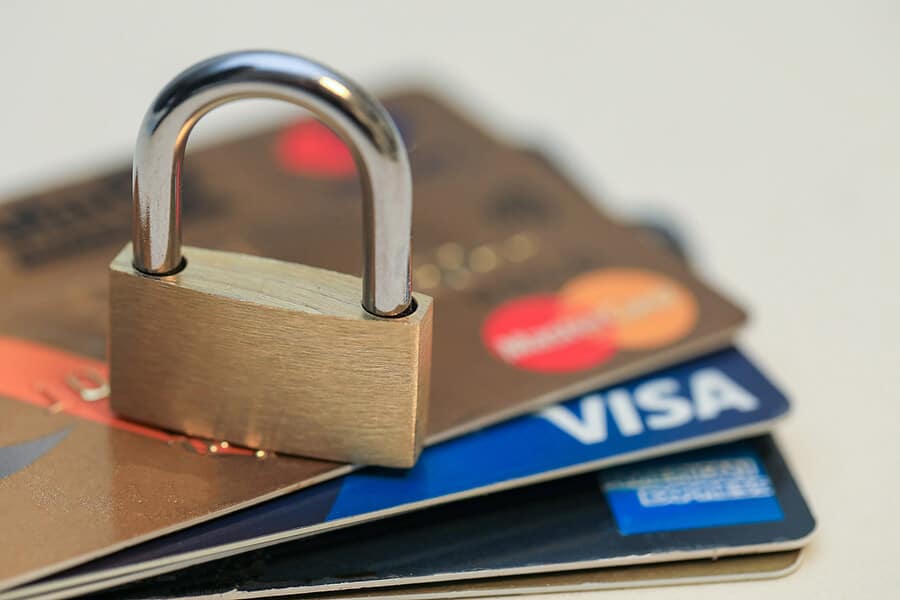Credit card fraud is a serious threat for all businesses – but small businesses are disproportionally affected. You may think that your business is too small to be targeted by hackers, but this couldn’t be farther from the truth. Small businesses with 10 to 50 employees, and even freelancers are frequently targeted.
Oftentimes, a small business lacks the resources to invest in top-notch security measures. Hackers identify this weakness and are quick to pounce. The end result can be tens of thousands of dollars lost and a damaged reputation.
It’s important to take adequate measures to protect your small business from the very real dangers of credit card fraud. The good news is that you don’t need to shell out thousands of dollars to do so. There are some simple and easy precautions you can take that will make your business safer. Take a look!
Only Work With PCI Compliant Payment Processor
The importance of being PCI compliant cannot be understated. PCI compliance means adhering to the recommendations set by The Payment Card Industry (PCI) Security Standards Council. This is an international organization that develops standards for security in the payment industry.
It’s essential your business is PCI compliant in order to protect your customers’ data and reduce your risk of fines. PCI compliance is also a legal requirement. You’ll have to pay enormous fees or risk your business shutting down if fraud is detected and you’re not PCI compliant.
The easiest way to ensure you’re PCI compliant is by working with a payment processing provider that’s also PCI compliant. You can read up on how to select the best payment processing provider for your business here.
Incorporate EMV Card Readers
EMV chip technology protects against counterfeit, lost, and stolen credit cards and debit cards at the checkout counter. It has become the global standard in facilitating debit card and credit card transactions because of how well it protects against fraud.
Most credit cards and debit cards already feature EMV chip technology. But your business will only be protected if you incorporate an EMV card reader into your point of sale.
If you don’t have an EMV card reader or if your payment processor is trying to charge you extra for one, make sure to read up on ways you can receive a state-of-the-art encrypted EMV reader for free.
Ensure Your Software Is up to Date
Outdated software is more prone to security breaches and less likely to be updated in accordance with the latest protections against credit card fraud. Outdated equipment can also impede transactions and deter customers.
Ensuring your software and equipment are up to date can be challenging on your own. For this reason, it’s best to work with a payment provider that manages necessary updates and provides you with the latest anti-fraud equipment.
Train Your Employees
Most small business employees aren’t adequately trained in fraud prevention. Yet, they play a crucial role in detecting fraud before it results in serious and sometimes irreversible damages.
Develop a security protocol, so if red flags come up, your employees will know how to respond. Oftentimes, one or more of the following signs can be a red flag for a suspicious transaction.
- Customer is rushing transactions.
- Customer is purchasing a wide variety of expensive items (e.g., in different sizes).
- Customer is refusing to use the EMV reader.
- Customer appears nervous or tries to distract employees during the transaction.
- Debit card or credit card numbers/letters are different sizes, not properly aligned, etc.
- The hologram is damaged, or the magnetic strip is missing.
In the event that red flags come up, your staff should ask to see identification, verify the address on the debit card or credit card, compare the information on the receipt to the information on the payment card, and thoroughly inspect the card for damages. If you or your staff suspect fraud, it’s best to get in touch with your payment processor.
Take Advantage of Mobile Payments
Mobile payments are one of the newest payment methods in wide-spread use. Most customers opt for them because they are convenient, but small businesses would be pleased to know that mobile payments are also a top choice for safety.
They feature advanced cryptograms, tokenization methods, and even fingerprint authorization – making them more protected than credit cards, checks, and even cash! Opting into mobile payments can make your small business more protected and modernized.
Increase Protection for Online Payments
Online points-of-sale are a major target for credit card fraud. You can’t actually see the customer and verify their credit card in person, which means you’ll need to take extra precautions when it comes to online payments. Here are some top ways to spot suspicious online orders.
- Orders that fail AVS (Address Verification Service).
- Orders with problematic CVV.
- Multiple purchases with the same IP address.
- The same shipping address for transactions where different cards were used.
- Multiple different orders placed on the same day on the same card or to the same shipping address.
Work With a Payment Processor That Protects Your Small Business
Working with the right payment processor cannot be overstated enough when it comes to protecting your small business against credit card fraud. You’ll avoid liability issues, keep your customer’s data safe, and even safeguard against costs that can be tens of thousands of dollars high.
Finical is a payment processor that specializes in protecting small businesses against credit card fraud. Finical is PCI compliant and offers the latest security measures within its software and equipment tools.
You’ll never have to worry about keeping up to date on the latest security protocols because Finical will take care of that for you. If you ever suspect fraudulent activity, you can reach Finical’s highly trained team 24/7.
Get in touch with Finical to learn about customizable payment solutions for your small business and free equipment if your business qualifies for it.


